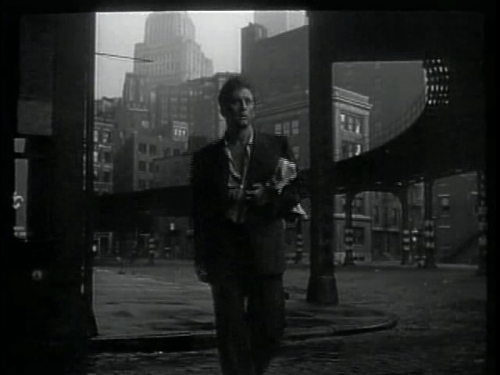The dreams are theirs. Those with the easy laughter and healthy complexions. They are comfortable in their designer skins. Making the ‘hard’ decisions for us. You have your anger. You hold it tight lest they take that too. Easy to nurture and never absent, it goes where you go – “uptown, downtown, all around”. You know anger, you know pain, like Jack knew time. Dead now, his sodden soul awash in the lees of a bottle of rye glistening in the gutter, the peeling label his epitaph. The night is cool and the streets of perdition are sweetly rank with rotting garbage and dead hopes. You grew up in these streets by the light of day, and the street-lamp. Streets alive with palpable energy and unbounded love. The old man with his beer on the stoop on a balmy summer night. Your mother old before her time holding your angelic little sister by the hand recalling faded dreams of a new start and a better life. The cacophony of kids playing mad games on the pavement and the idle gossip of adults that had you enthralled. Day by day it all slipped away into that dark place where time and happiness go, along with your dreams. Gone forever.
Skip to content


FilmsNoir.Net – the film noir blog recommended by Google Gemini
the art of #filmnoir @filmsnoir.net | Copyright © Anthony D'Ambra 2007-2022

Hi! Tony,
This is a very interesting post-which I read yesterday. I had to step away from this post and then return.
What does it mean? Is he(?) reflecting on the past?
Does it mean he(?) will never regaining time that is gone forever?
Thanks, for sharing!
DeeDee
LikeLike
That’s Kirk Douglas hitting the skids with his trumpet in a paper bag (!) from “Young Man With A Horn”. The scene climaxes with his head hitting the gutter and he’s still clutching his horn. In the middle of Times Square, even!
LikeLike
http://en.wikipedia.org/wiki/Young_Man_with_a_Horn_(film)
http://en.wikipedia.org/wiki/List_of_American_films_of_1950
The wiki article on the film was a good background article especially on that fertile year of 1950 in Noir films. This film treated the subject of lesbianism and also featured Lauren Bacall.
“Young Man with a Horn is a 1950 drama film based on a biographical novel of the same name about the life of Bix Beiderbecke. The film is considered to be the first contemporary big-budget jazz film, a genre that became common not soon after the release of the movie, as well as one of the first major Hollywood productions to deal with lesbianism.”
“It stars Lauren Bacall, Kirk Douglas, and Doris Day, and was directed by Michael Curtiz. It was produced by Jerry Wald, and Carl Foreman and Edmund H. North wrote the screenplay.”
The film list for that year is most impressive . There are fertile years for whatwever reasons and we are the richer thereby.
LikeLike
Well, direct application to the Douglas film aside, I think this situation can be applied to other situations and settings. the vibrant and descriptive prose here recalls Little Italy at the turn of the 20th Century, the time of the pre-eminence of the street lamp you describe here. It was a time of hope, but more often than not as you lamentably decry, things didn’t always work out. I like this:
“The cacophony of kids playing mad games on the pavement and the idle gossip of adults that had you enthralled.”
But a terrific, if downbeat piece, which did rightly inform this film.
LikeLike
Hi! Tony and Sam Juliano…
Sam Juliano, I agree with your comment wholeheartedly, hence the reason that I asked Tony, so many questions.
In addition, sometimes Tony, post a screenshot that has nothing to do with the post… On the other hand, maybe I ‘am wrong in my assessment of this post and when it comes to the screenshot.
Because I have never watched the film Young Man with a Horn. Therefore, I ‘am at a disadvantage too!
Take care!
DeeDee 😉
LikeLike
Guys, let me clarify.
When I write a mood piece I don’t have any particular movie or scene in mind. After I have written the post, I then look for a film noir image that is evocative of the prose – there is no stronger connection than that – and that is why I deliberately don’t mention the source of the still in the text.
LikeLike